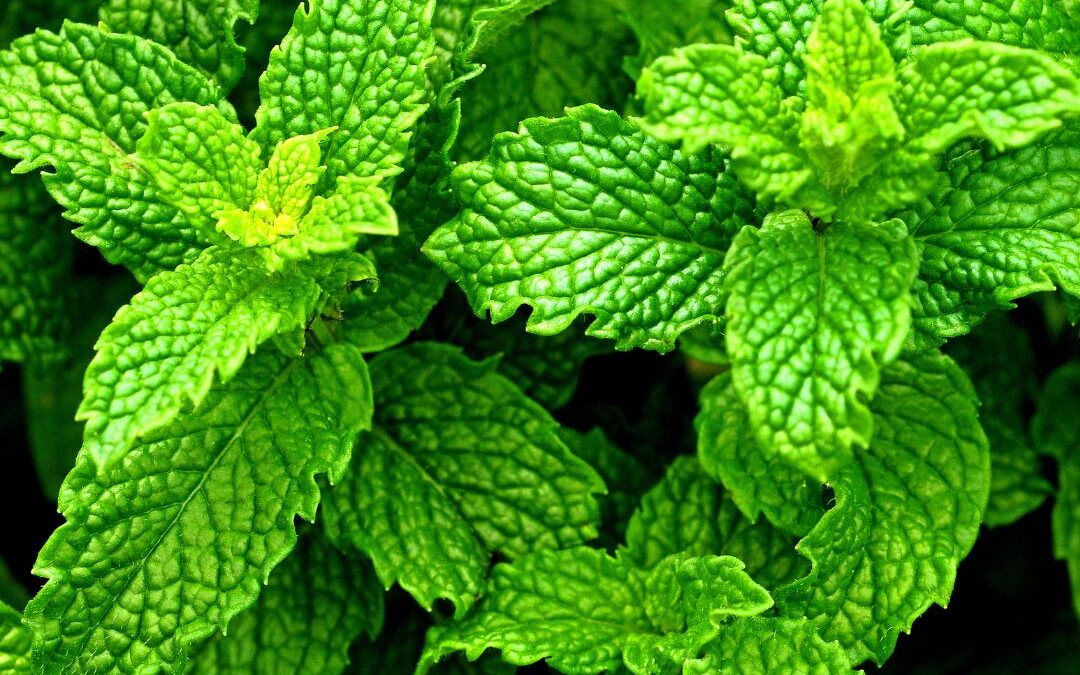Today, I’m talking about a herb which really needs no introduction. It’s used by those releasing weight as an appetite suppressant. It’s the go-to for bloating, gas and a whole wide variety of gastrointestinal disorders, and it’s used by those in the know to peak the taste of your herbal tea. This herb really does need no introduction. Have you guessed who I’m talking about?
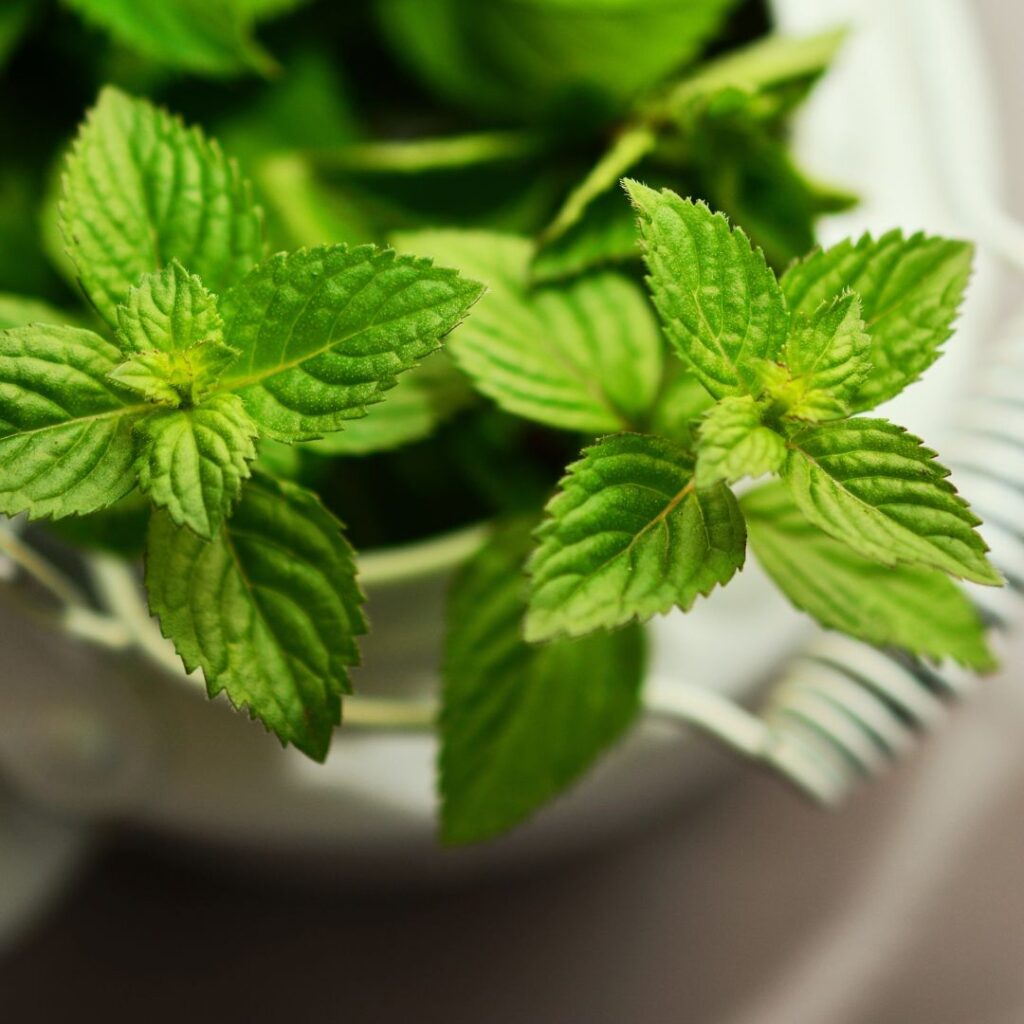
Today’s herbal ally is peppermint.
Peppermint or mentha x piperita is one of those herbs that’s super easy to grow.
It’s a perennial, so it’s going to last many seasons.
It puts out stolons, which creep along the ground and the leafy stems pop up from these, and it has that classic Lamiaceae lavender-coloured flower.
It’s a beautiful looking herb. Peppermint was first cultivated near London around 1750 and it is a cross between spearmint (mentha spicata) and watermint (mentha aquatica). It will tolerate most growing conditions, but its preference is for that rich, loamy, moist soil. For it to flourish, give it lots of water, but not so much that its feet are always wet.
It doesn’t like that, and it likes full sun. Now it does like to take over the place, so if you prefer to grow it in a pot, that’s probably a good idea. In herbal medicine, we use the whole herb. Most commonly, it’s leaves, and we also use the essential oil.
peppermint essential oil
Essential oils are very concentrated, and they should only be used internally or undiluted under very specific circumstances.
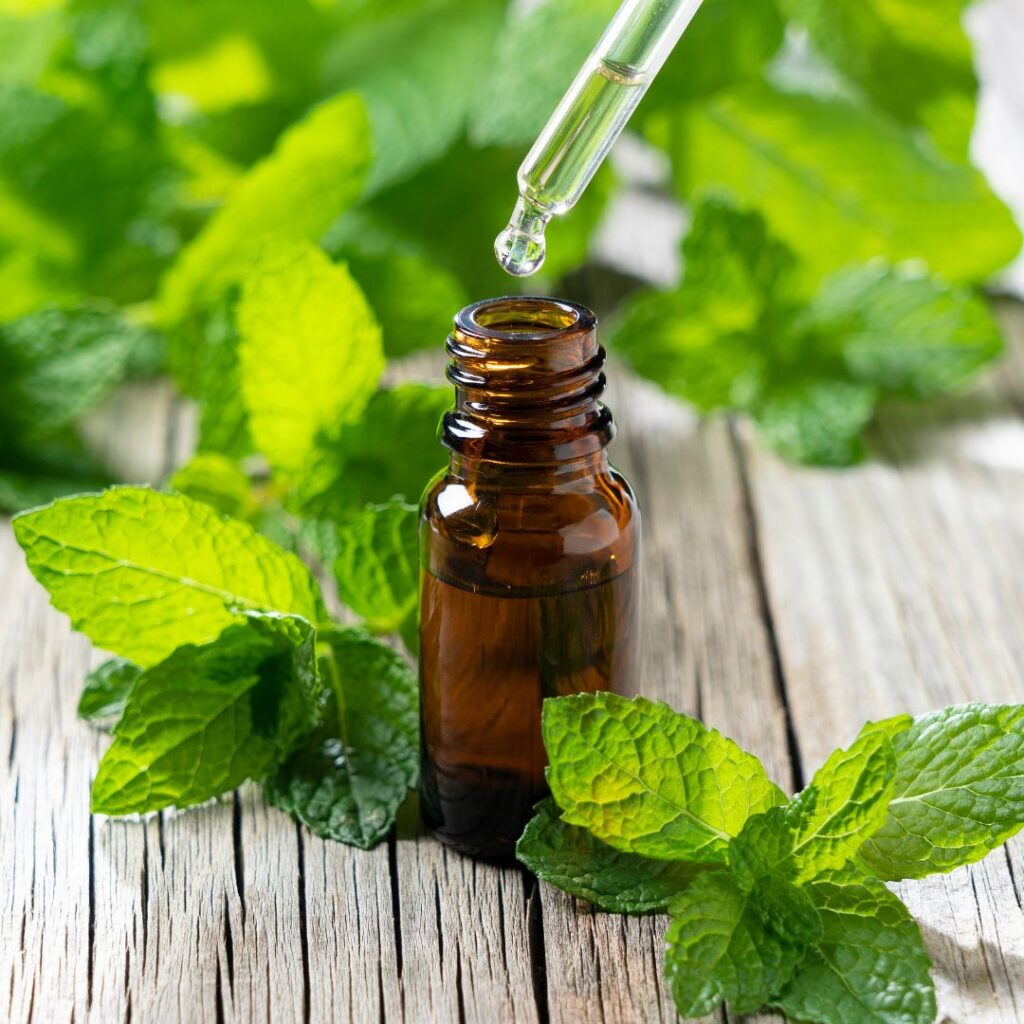
Make sure you’re using it as directed by a health professional in these cases.
For home remedies, I would recommend staying with peppermint leaf.
It also contains rosmarinic acid, which is a wonderful and powerful antioxidant, and it has loads of different flavonoids as well.
Peppermint tea is often recommended for those wanting to release excess weight, and this is because the volatile oils and peppermint stimulate messages to your brain associated with satiety, and as a result, you feel full.

Interestingly, it’s the aroma associated with peppermint that appears to be the trigger for this, so when you’re sipping on your peppermint tea, make sure that you’re gently inhaling its delicious pepperminty aroma as you go.
Peppermint is best known for all things gastrointestinal, and it came to prominence during the early research into irritable bowel syndrome or IBS. It became the superfood, the panacea to solve all gastric ills.
Now, what I love most about peppermint is that it does a bunch of stuff, which promotes a broad-ranging overall improvement in your gut health. So here’s what the research has reported so far.
It also down-regulates the messages associated with pain, so it reduces our pain sensitivity as well as reduces the number of spasms.
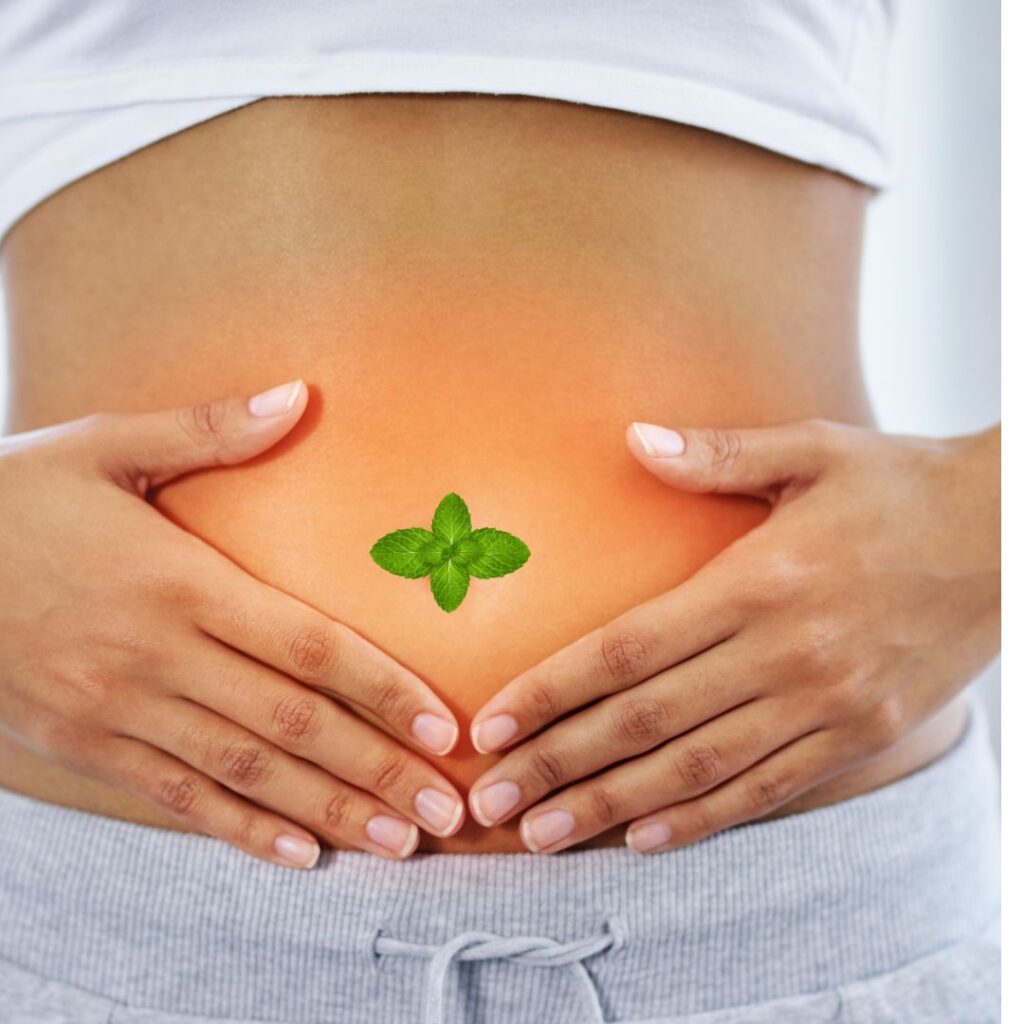
It is a carminative, so it helps our body to discretely move gas along. And this, in turn, reduces bloating. It also stimulates the liver and the gallbladder, and that means that we’ve got more ingredients available to help with digestion.
It relaxes smooth muscles, and it’s an anti-inflammatory. Now, it’s also antimicrobial, and it supports the growth of healthy bacteria in your gut, and this is referred to as our microbiome. Now, these effects can be much broader than just your gastrointestinal system. We’re talking about the whole body reducing sensitivity to pain means that peppermint can be a really helpful pain reliever.
It’s also great as a topical analgesic. The combination of relaxing smooth muscle, reducing inflammation and decreasing that pain sensation can also be helpful when you’ve got a headache and that cold feeling associated with the menthol and peppermint can also be helpful because it can be refreshing. It’s due to a protein that’s called TRPM8.
the fight against pathogens
Now, this protein up-regulates signalling to your brain, and it’s the signals that interpret things as cold, and that’s why peppermint feels cold when you drink it or place it on your skin. Peppermint has broad-ranging antimicrobial, antifungal and antiviral phytochemicals. Peppermint oils activate against several common gut pathogens, such as Helicobacter pylori. Ecoli, staphylococcus aureus, klebsiella species, salmonella, shigella and the Shigella flexneri so that’s the Boydii and the flexneri.
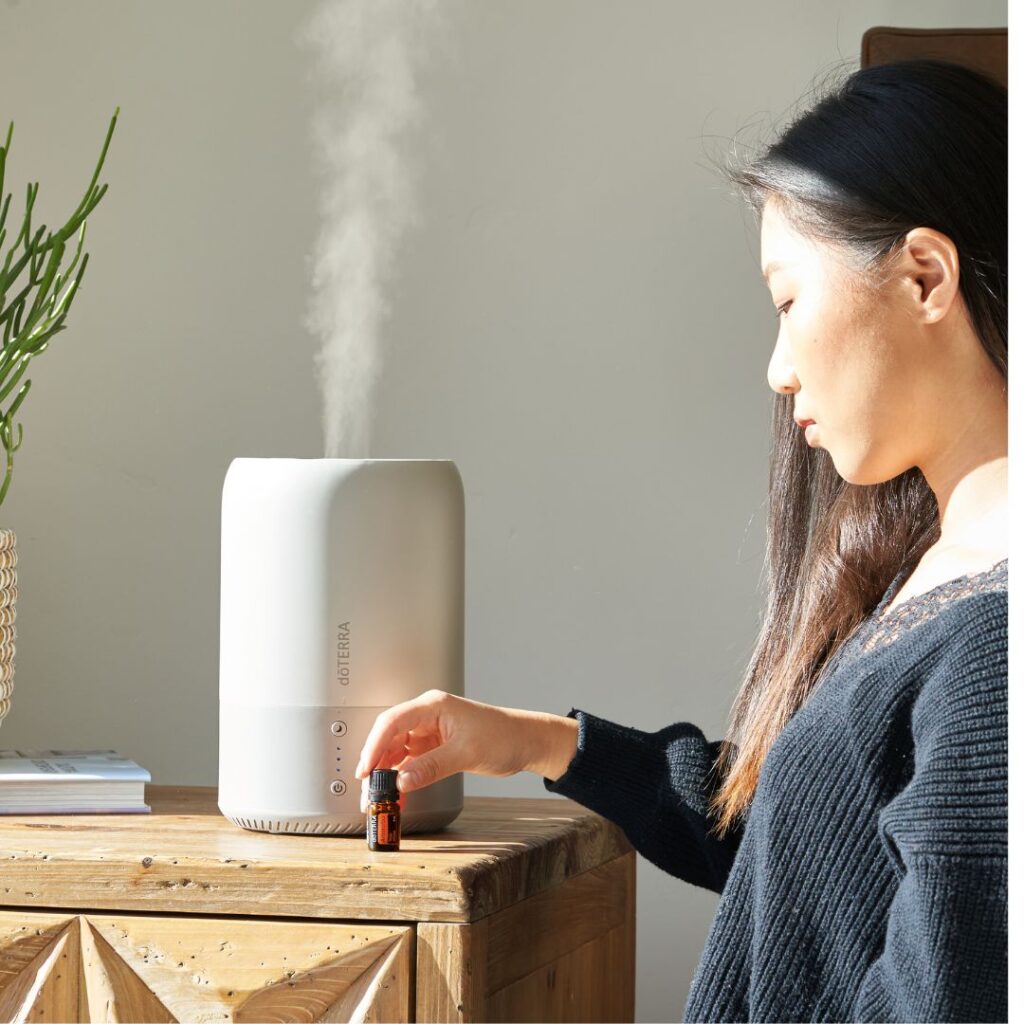
Hanging peppermint, or having it burning as a candle or in an essential oil infuser can also increase your focus, your memory and your concentration so it’s a great study aid, and it can reduce anxiety.
But remember any aroma that increases focus can be quite stimulating so as a general rule, this isn’t for use just before bed, but try it out, and see how you get on with it. Peppermint also has the ability to heat you up and boost your immune response. Now, you’ll recall from a previous episode that it’s one of my favourites in our cold and flu tea, which is equal parts of elderflower, yarrow and peppermint.
peppermint tea
So how do I prefer to take my peppermint? Well, my favourite way is a nice strong tea made from peppermint leaves, and they can be made with fresh or dried leaves.
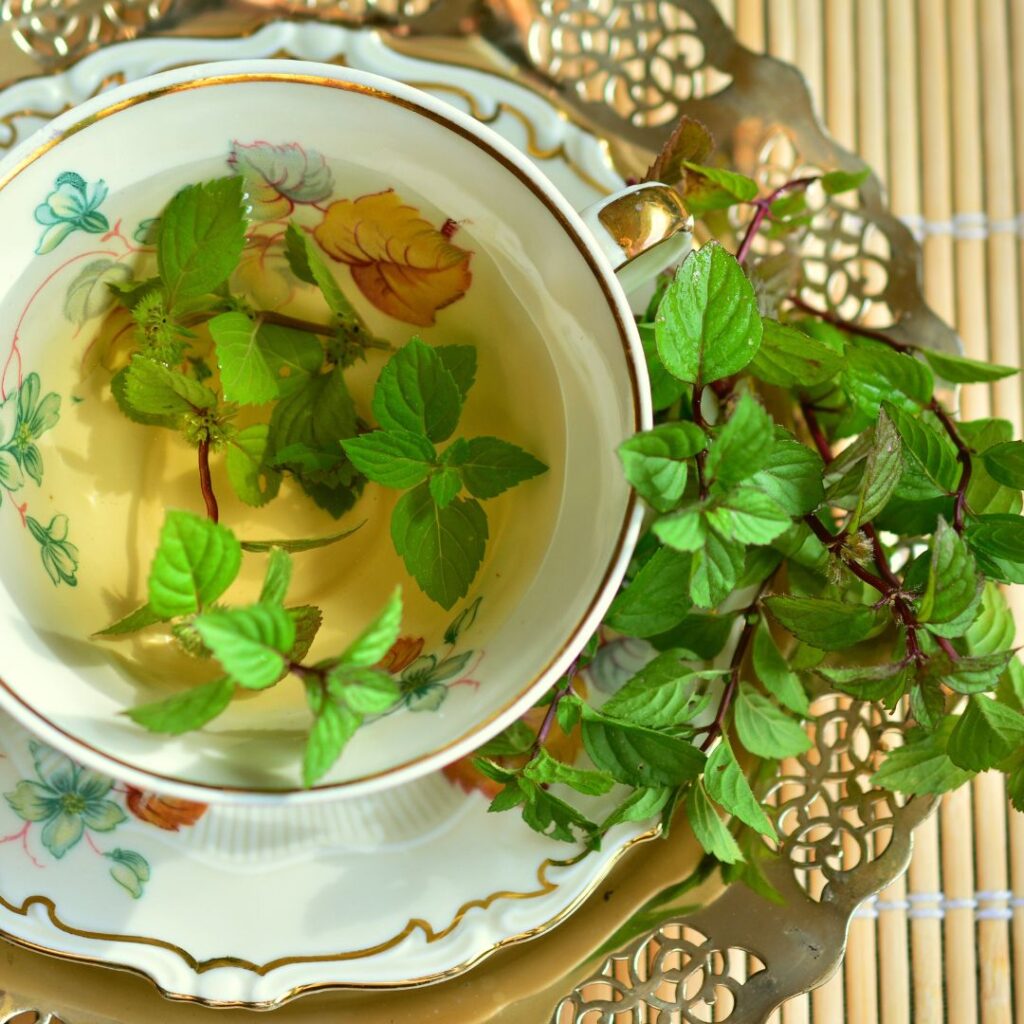
It’s all about those volatile oils. So when you’re steeping your tea and when you’re steeping your leaves and boiling water, put a lid on your mug or brew in a teapot because you want to maximise the retention of those volatile oils.
You don’t want them escaping into the air, and peppermint tea can be delicious, hot or cold. I like to drink it cold in the summer. It’s very refreshing. I also add a pinch of peppermint to other herbal teas just to peak the taste. Now, if you’re prone to tension, and headaches, some peppermint oil in a carrier oil dabbed onto your temples can work a treat. My other favourite way of using peppermint is by vapourising peppermint essential oil in an essential oil burner.
Herbal interactions
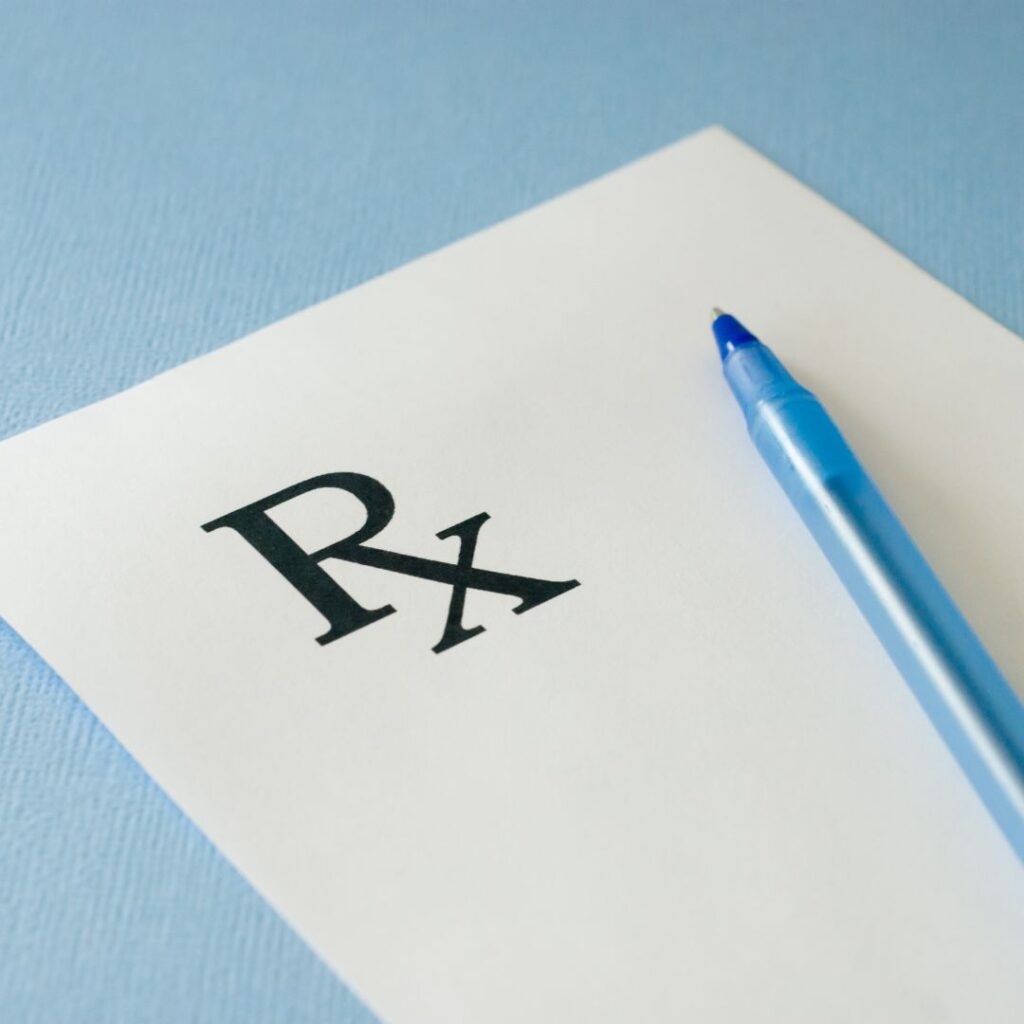
Here’s the thing. Just because it’s natural, it doesn’t mean it’s good for you. As with any herb, you need to understand how it interacts with your body, your supplements and your medications. Avoid peppermint if you have a hiatal hernia or you have acid reflux, often referred to as GERD.
G. E. R. D. And this is because peppermint is really good at relaxing the smooth muscle in your gastrointestinal tract and relaxing this muscle can make the symptoms associated with these conditions worse. Also, avoid peppermint. If you have an allergy or a sensitivity to menthol. Peppermint may increase the actions associated with drugs such as felodipine and simvastatin.
Felodipine is used to treat high blood pressure and angina or chest pain, and simvastatin is a statin that’s prescribed to lower cholesterol. It’s also known as lipids on the market. If you’ve got any doubt, talk to your pharmacist or your medical herbalist. Peppermint has been recognised as one of the go-to herbs for gastrointestinal complaints and gentle pain relief, and the research backs up this traditional approach.
Spend some time getting to know peppermint and how peppermint chooses to interact with your body. It’s one of those herbs that has supported us through the ages, but its broad-ranging actions confirm its use as one of our herbal allies for this time.

